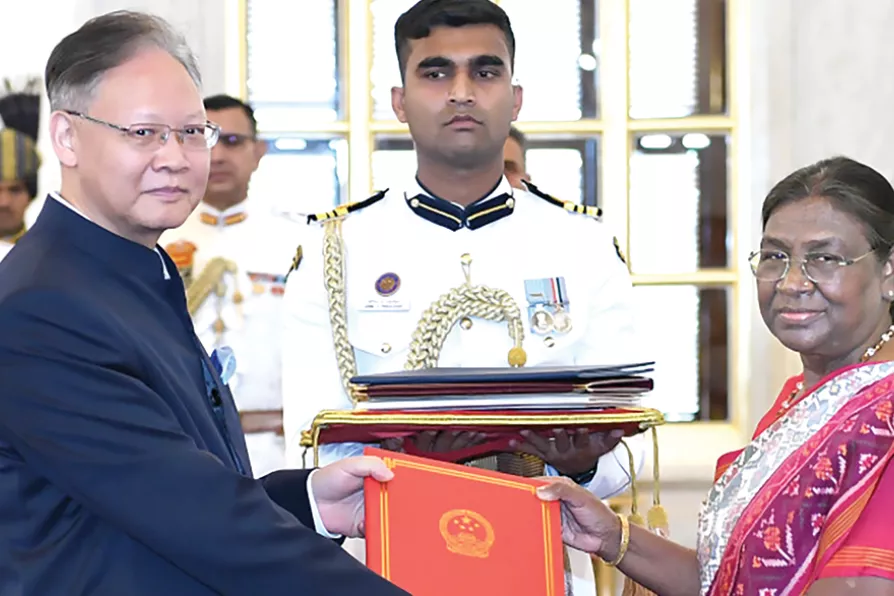Israel and the US talk as if they’ve won a victory, but the reality is that world opinion has turned decisively against the Israeli regime, says RAMZY BAROUD

 A NEW ERA BEGINS: The Ambassador-designate of the People's Republic of China, Xu Feihong presenting his credentials to the President of India, Droupadi Murmu at Rashtrapati Bhavan, the official residence of the President of India in New Delhi, on May 31 2024
[President's Secretariat/CC]
A NEW ERA BEGINS: The Ambassador-designate of the People's Republic of China, Xu Feihong presenting his credentials to the President of India, Droupadi Murmu at Rashtrapati Bhavan, the official residence of the President of India in New Delhi, on May 31 2024
[President's Secretariat/CC]
THE simmering border conflict between India and China in the Himalayan region has come to an end, with both nations committing to co-operate in resolving their border disputes.
Both countries recognise that such conflicts hinder the progress of peace and prosperity in the region, posing obstacles to establishing a multipolar world and the democratisation of global geopolitics.
This diplomatic achievement has disrupted the agenda of imperialist blocs that sought to escalate the conflict into a full-blown war between India and China, threatening peace, stability, and prosperity in both countries and around the world.

In a speech to the 12th Xiangshan Forum in Beijing, SEVIM DAGDELEN warns of a growing historical revisionism to whitewash Germany and Japan’s role in WWII as part of a return to a cold war strategy from the West — but multipolarity will win out

In the first half of a two-part article, PETER MERTENS looks at how Nato’s €800 billion ‘Readiness 2030’ plan serves Washington’s pivot to the Pacific, forcing Europeans to dismantle social security and slash pensions to fund it












